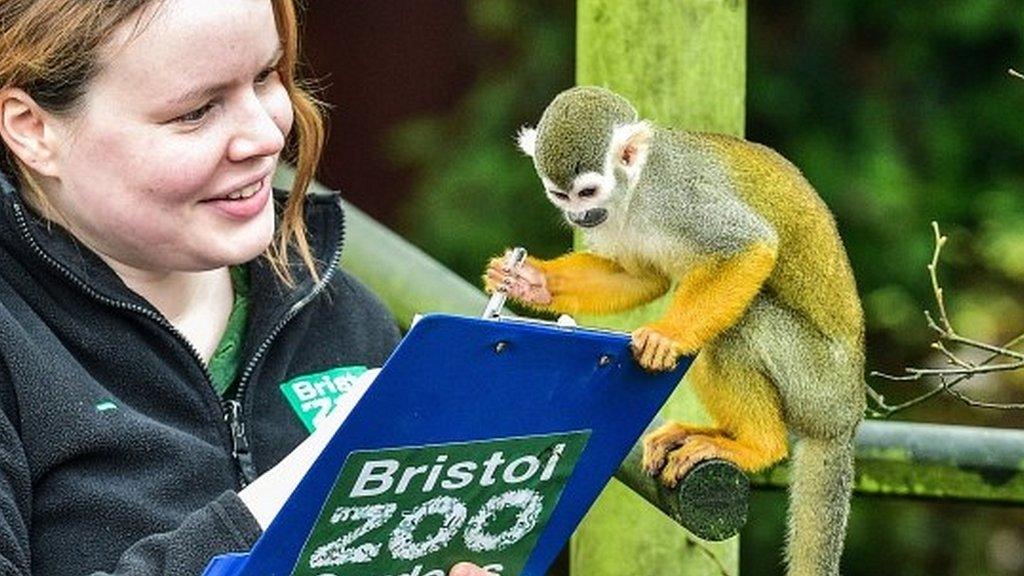Rare baby Desertas wolf spiders hatch at Bristol Zoo
- Published
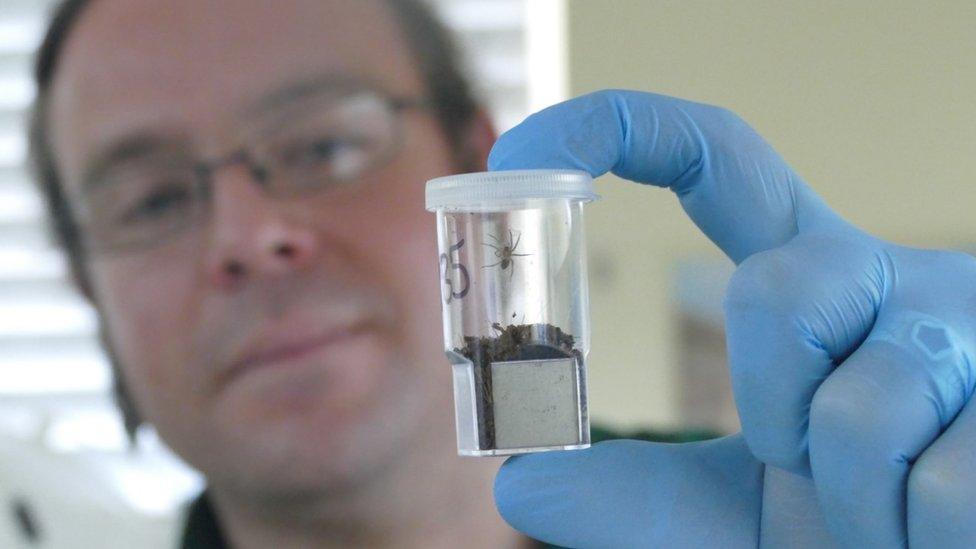
Curator Mark Bushell said breeding the species in captivity was a "steep learning curve"
More than 1,000 Desertas wolf spiderlings have hatched at Bristol Zoo - the first time the rare spider has been bred in captivity.
The species is only found in a valley on one of the Desertas islands, near Madeira, Portugal.
Twenty five spiders were brought back by a zoo keeper last year in an attempt to breed them in captivity.
There are plans to send hundreds of the spiderlings to other zoos in the UK and Europe to set up more breeding groups.
The Desertas wolf spider is classified as critically endangered but is not a protected species.
The species is under threat from a loss of habitat due to invasive grass binding soil where they burrow.
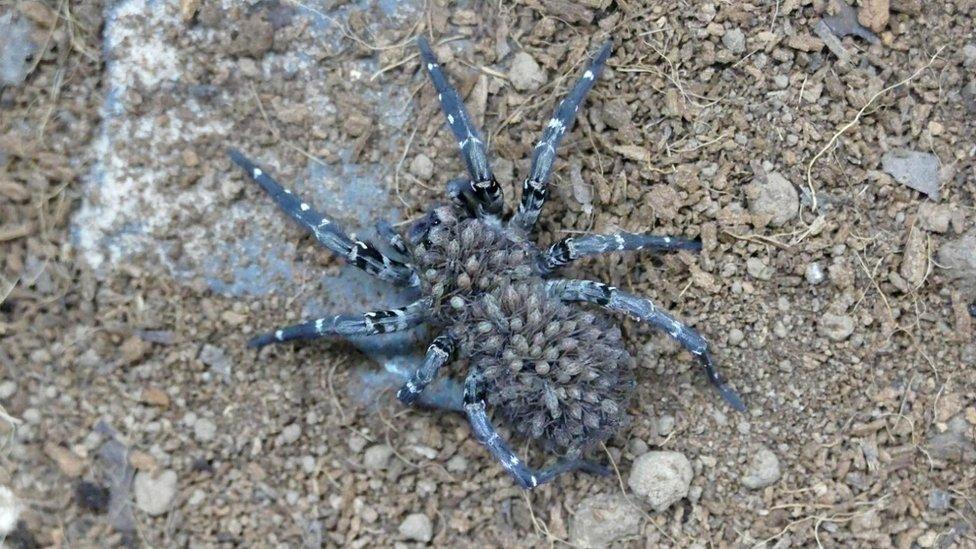
The spiders grow to be large black and white adults up to 12 cm
The baby spiders are 4mm in diameter but grow to be black and white adults up to 12cm (5in) in diameter with a body size of 4cm (1.6in).
Bristol Zoo has joined with Instituto das Florestas e Conservação de Natureza and the International Union for Conservation of Nature to develop a strategy to prevent the species becoming extinct.
'Career highlight'
The zoo's curator of invertebrates, Mark Bushell, said: ""Because this was the first time this species had ever been taken into captivity to breed, it was a steep learning curve. After some of the female spiders were mated, it was an anxious wait to see if they would produce egg sacs.
"We were thrilled when they did, and to see the tiny spiderlings emerge was fantastic - a real career highlight.
"Establishing the world's first captive breeding programme for this species is a fantastic step towards protecting it for the future," added Mr Bushell.
- Published25 April 2017
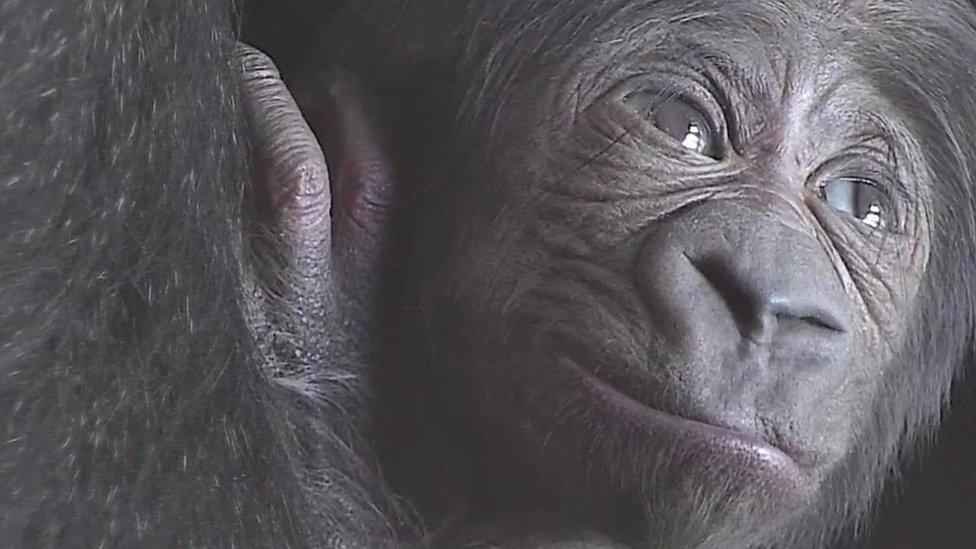
- Published3 March 2017
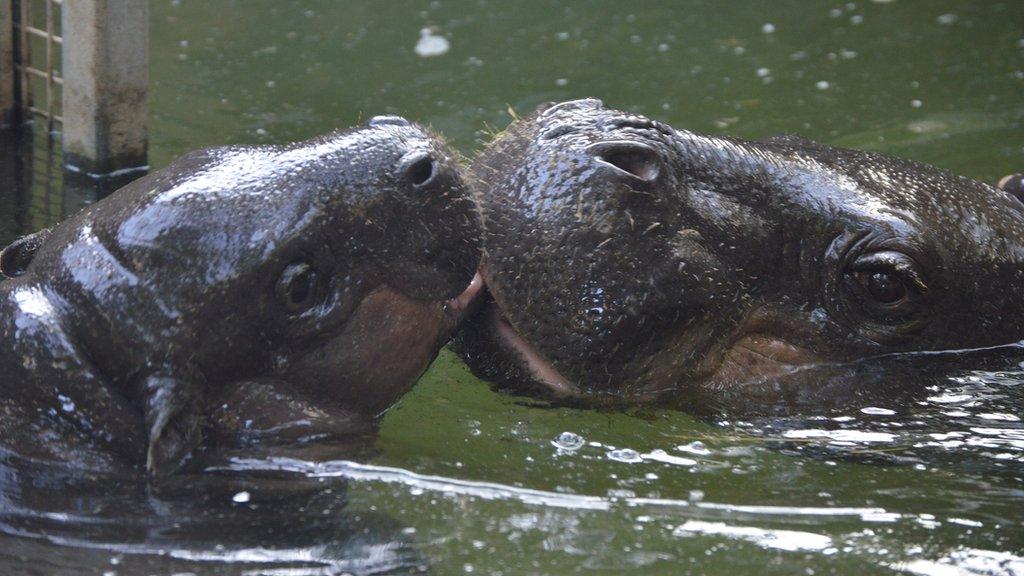
- Published30 December 2016
